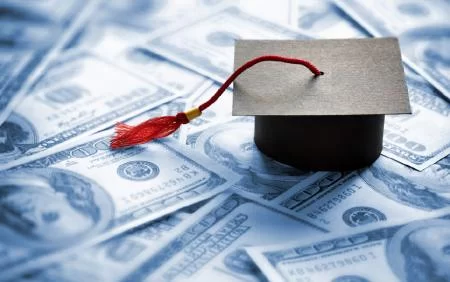
- Creditors-Rights-in-Student-Loan-Defaults-Overview
- Legal-Framework-and-Collection-Methods
- Real-Life-Cases-Highlighting-Creditor-Activities
- Strategies-for-Borrowers-and-Creditors
1. Creditor's Rights in Student Loan Defaults Overview
When a borrower defaults on a student loan, creditors gain a range of rights aimed at recovering the owed amount. Understanding creditor's rights in student loan defaults is essential not only for lenders but also for borrowers who face these challenging circumstances.
Student loans, whether federal or private, come with legal frameworks that empower creditors to take specific actions when payments are missed. These rights often include initiating collection procedures, reporting defaults to credit bureaus, and pursuing legal remedies such as wage garnishment or litigation.
Creditors’ ability to enforce these rights is governed by a combination of federal statutes, contract terms, and sometimes state laws. Knowing these rights helps clarify what borrowers can expect and how creditors legally protect their financial interests.
The Distinction Between Federal and Private Student Loans
Federal student loan creditors generally have broader and more powerful rights compared to private lenders. For instance, federal loans allow government agencies to garnish wages without a court order and even seize tax refunds or Social Security payments under certain conditions.
Private creditors, while still possessing strong collection rights, usually must follow standard debt collection procedures and often require court intervention to garnish wages or seize assets. These differences significantly affect how creditors enforce their rights in student loan defaults.
2. Legal Framework and Collection Methods
The legal rights of creditors in student loan defaults are multi-layered and encompass several collection methods designed to recover debt effectively:
2.1 Reporting to Credit Bureaus and Credit Impact
Creditors have the right to report missed payments and defaults to credit reporting agencies, which severely impact borrowers' credit scores. This reporting incentivizes repayment but also highlights the seriousness of default.
2.2 Wage Garnishment and Asset Seizure
Under federal law, agencies collecting on defaulted student loans may garnish wages up to 15% of disposable income without a court judgment. This powerful right is less commonly held by private lenders, who typically need to sue before garnishment.
2.3 Legal Action and Judgments
Creditors may file lawsuits to obtain judgments against defaulting borrowers. Once a judgment is obtained, creditors can execute on assets or bank accounts, depending on jurisdictional rules. This legal avenue is a critical tool in enforcing repayment.
2.4 Collection Fees and Interest Accrual
Creditors also retain the right to add collection fees, legal costs, and continued interest accrual to the loan balance, increasing the total amount owed over time. Borrowers should be aware of these escalating costs to understand the full impact of default.
3. Real-Life Cases Highlighting Creditor Activities
Consider the case of a borrower who defaulted on a federal student loan and later faced wage garnishment without prior court proceedings. This borrower’s story reflects how federal creditors exercise their rights swiftly, often catching borrowers by surprise.
On the private loan side, another borrower faced months of negotiation before a creditor filed suit, resulting in a court judgment and eventual bank account seizure. This example demonstrates the more traditional legal route private creditors typically pursue to enforce their rights.
These real-world situations reveal how creditor rights operate in practice and the importance of understanding these mechanisms from both perspectives.
4. Strategies for Borrowers and Creditors
For creditors, exercising rights within the bounds of law while maintaining good communication can lead to better recovery rates and fewer costly legal battles. Utilizing loan rehabilitation programs and flexible repayment plans often benefits both parties.
Borrowers, on the other hand, should seek professional advice early to navigate default consequences and explore options such as deferment, forbearance, or refinancing. Understanding creditor rights allows borrowers to respond proactively rather than reactively.
If you or your organization needs expert guidance on creditor's rights in student loan defaults, ESPLawyers offers specialized services to help navigate this complex area effectively.








